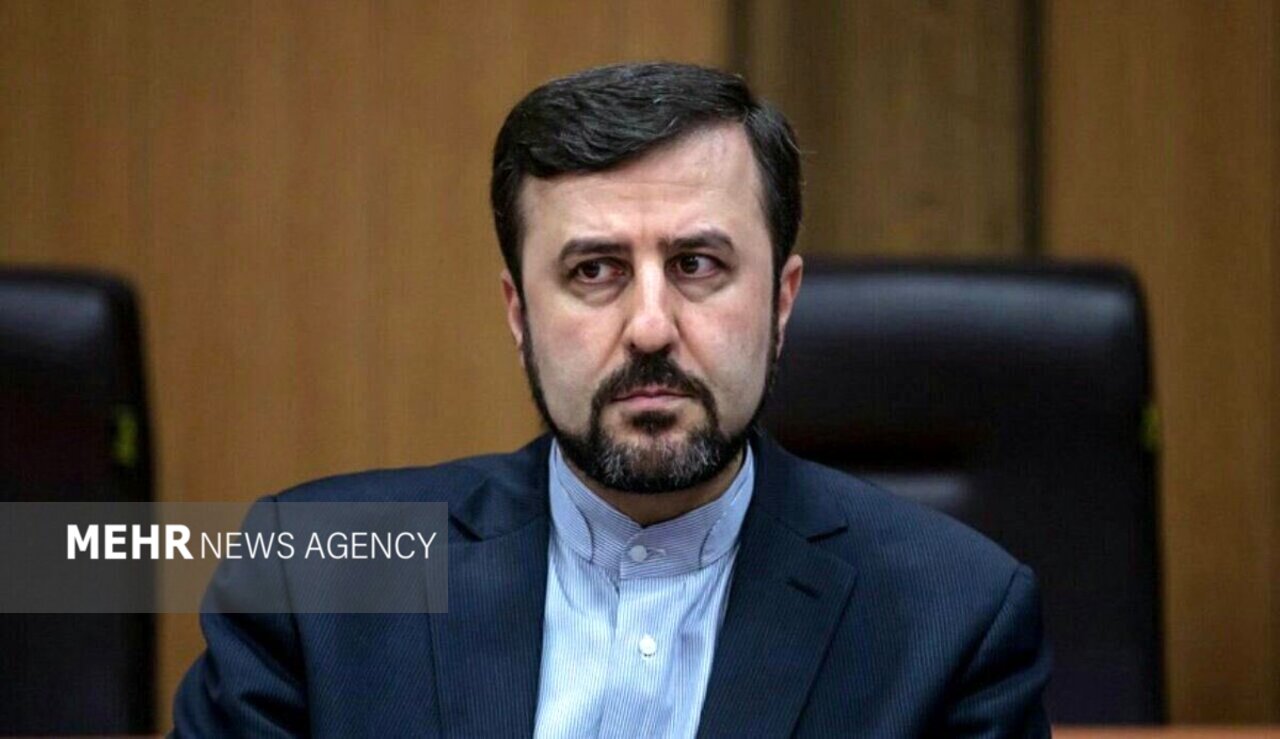Don’t expect installation of IAEA cameras damaged by Israel without costs: Iran tells E3, US, IAEA

TEHRAN – Iran’s ambassador to the IAEA on Monday afternoon reacted to the remarks by the representatives of the U.S., the European trio (E3), as well as the IAEA regarding the Tesa Complex in Karaj, saying they cannot “remain silent” in the face the Israeli regime’s “terrorist operations” against the Iranian sites and don’t prevent it and then seek a continued IAEA surveillance of the sites that have suffered damage in the terrorist sabotage acts.
“When the Agency’s surveillance equipment run out of service by the Zionist regime don’t expect Iran to install them again without any cost for this regime and without any measure by the Agency and claimant countries,” Kazem Gharibabadi asserted.
Gharibabadi added that the new agreement between Iran and the International Atomic Energy Agency was “fully implemented during the specified time” and therefore Iran will monitor reaction to its “goodwill” and will take the “necessary moves” at each stage.
In a series of earlier tweets, Ambassador Gharibabadi said, "It is deeply unfortunate that after three terrorist sabotage operations at the facility over the past year, the IAEA has not yet condemned these heinous acts, contrary to numerous resolutions of the IAEA General Conference and the UN General Assembly, and even because of its equipment and assets and the safety and security of its inspectors."
IAEA chief Rafael Grossi visited Tehran on September 12 during which Iran and the IAEA issued a joint statement for cooperation. After Grossi’s visit to Tehran, Iran’s nuclear chief Mohammad Eslami also visited Vienna to attend the annual IAEA General Conference.
“During the discussions in Tehran and Vienna, Iran indicated that since the Tessa Karaj Complex is still under security and judicial investigations, equipment related to this Complex are not included for servicing. That's why the phrase ‘identified equipment’ has been used in the ‘joint statement’,” Gharibabadi tweeted.
He added, "The joint statement of the head of the Atomic Energy Organization of Iran and the director-general of the IAEA on September 12 was also obtained in good faith of Iran and with the aim of replacing the ‘specified equipment’ memory cards. The Agency also took action to implement this goal from September 20 to 22."
Ambassador Gharibabadi also said the report by the IAEA director-general regarding surveillance cameras at the Tesa complex is “inaccurate and goes beyond the understandings” reached in the joint statement.
“Therefore, the director general’s report on Sep 26 isn't accurate and goes beyond the agreed terms of the joint statement. Any decision taken by Iran on monitoring equipment is only based on political rather than legal considerations and the Agency cannot and should not consider it as one of its entitlements.”
Leave a Comment